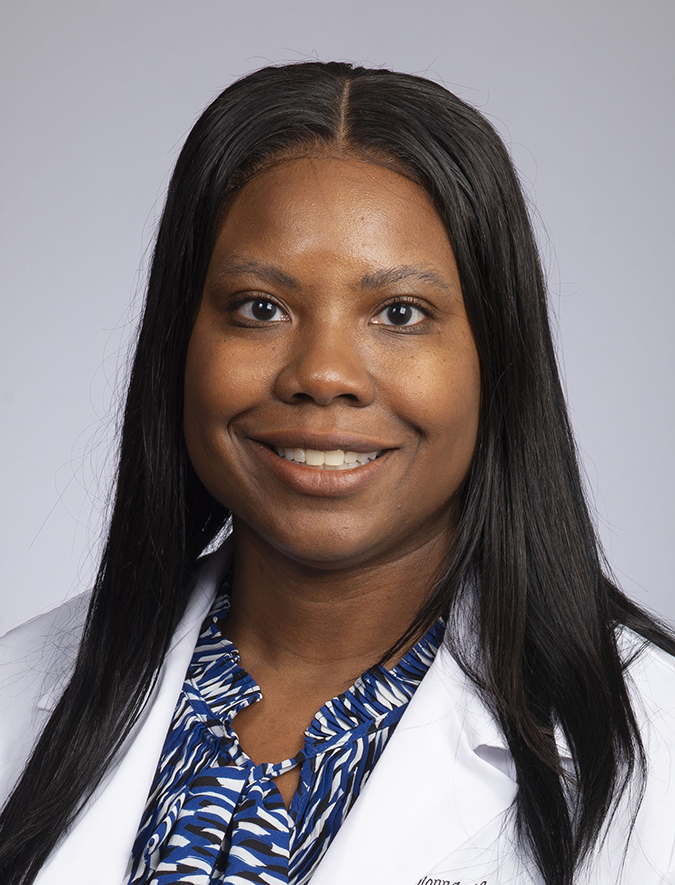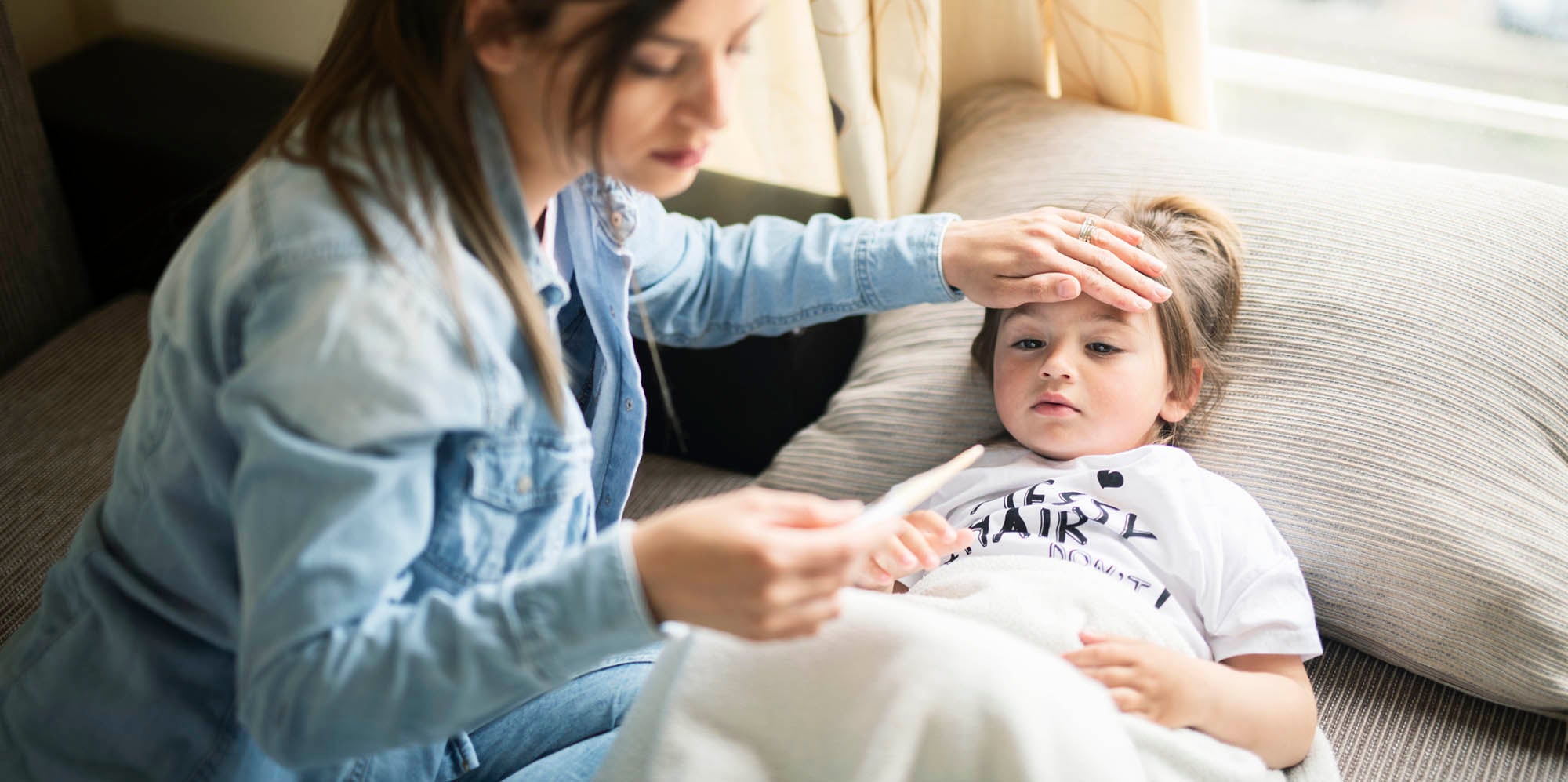For many children, influenza (flu) is a serious illness that leads to thousands of hospitalizations. It occurs mostly in children younger than 5 years of age. It's estimated that 20,000 of these children are sent to the hospital every year with the flu. Navigating this period and ensuring your child remains healthy can be daunting, but with some expert guidance, it can be more manageable.

Dr. Dionna Lomax, a family medicine physician at Loyola Medicine, provides invaluable insights and recommendations to help parents ensure their child's safety and well-being during flu season.
When should my child get the flu shot?
While some parents might think they've missed the window for the flu shot for kids once winter is underway, the truth is, there's still time to get them vaccinated. The flu season often peaks between December and February, but it can continue as late as May. Given that the body requires roughly one to two weeks to develop the necessary antibodies post-vaccination, receiving the shot even in January or later can still offer protection against late-season outbreaks. Dr. Lomax emphasizes that every child aged six months and up should ideally be vaccinated, not just for their own safety but to also reduce the spread within the community. It is important to note that 50% of children hospitalized for influenza did not have any underlying health conditions.
With rare exceptions, every child should get the flu shot. However, as a parent, you may be asking, "Who should not get a flu shot?" There are few circumstances in which a child shouldn't get one. They include children younger than 6 months of age, those with a severe allergy to a vaccine ingredient, or a child who has already had an allergic reaction to an influenza vaccine in the past.
Flu prevention is key
Many parents are worried about their child contracting the flu. Preventing the flu begins with common sense actions, like proper hygiene. Parents play a pivotal role in helping cement these flu prevention habits in their children:
- Handwashing: Make sure children wash their hands with soap and hot water for at least 20 seconds, especially before eating, after using the restroom, and after sneezing or coughing.
- Tissues: Stock up and teach children to discard tissues immediately after use and not leave them lying around.
- Elbow etiquette: If tissues aren’t handy, children should be taught to sneeze or cough into their elbow, not their hands. This reduces the chance of spreading germs through touch.
- Avoid touching the face: Germs often enter the body through the eyes, nose, and mouth. Educating children on this can significantly reduce their risk, although this might be more difficult for a child.
Flu vs. RSV symptoms
Should your child contract the flu, staying calm is essential. Common symptoms to watch for include:
- Sudden onset of high fever
- Intense chills
- Pronounced body aches
- Severe exhaustion.
- Cough
Unfortunately, these symptoms can be very similar to other common winter illnesses, such as the common cold or respiratory syncytial virus (RSV). However, there are some major differences, especially when it comes to RSV.
For example, while your child might have aches, a sore throat, and fatigue with RSV, difficulty breathing is the predominant symptom. If your child is wheezing, that's a sure-fire sign of RSV rather than the cold or flu.
How to treat children's flu symptoms
When it comes to treating the flu in children, different age groups require distinct care:
- For children aged 4-6: Avoid giving over-the-counter cough and cold medications unless a physician has approved it.
- For children older than 6: Most children do not need medication to treat a flu-like illness. Any over the counter flu medications only treat symptoms but not the virus. Your immune system will naturally fight most viruses.
- A prescribed medication called Oseltamivir (Tamiflu) is used to treat influenza in some children. If your child is ill enough to warrant a visit for the flu, the family physician will determine if this treatment is appropriate for your child.
Here some general recommendations for how to treat children's flu symptoms:
- All children may benefit from the moisture provided by a warm mist humidifier.
- Infants (6-12 months) can be given 4 to 8 ounces of warm clear fluids like water or apple juice in addition to their daily formula and/or breast milk. An oral electrolyte solution like Pedialyte can be used over 1 year of age, unless otherwise specified by your physician.
- Children over a year old may take half to a full teaspoon of honey to alleviate a cough – it acts as a natural cough suppressant and helps thin mucus.
If you have any concerns about treating your children's flu symptoms, speak with your child's pediatrician. They can help guide treatment and provide recommendations to get your child back on their feet as soon as possible.
When can my child go back to school after the flu?
While it's natural for parents to be concerned about their child missing school, it's essential to prioritize health. If a child returns to school while still contagious, it not only jeopardizes their own recovery but poses a risk to others.
As a general rule, children should be fever-free (below 100.4°F or 38°C) for at least 24 hours without the help of fever-reducing medications. Additionally, ensuring that they have regained their energy and appetite can be good indicators that they are ready to return to a learning environment.
Remember, communication is essential. Inform the school if your child has been diagnosed with the flu, and ask about any policies or guidelines they might have in place for such situations.
Let Loyola Medicine take care of your family
At Loyola Medicine, our family medicine doctors are devoted to providing quality care with compassion for each individual member of a family. Having a consistent doctor for yourself or your whole family can often lead to better treatment plans, because family medicine doctors will get to know you thoroughly over time.
As an academic medical center, Loyola’s family medicine doctors take a multidisciplinary approach to treating all members of the family. If your condition requires more specialized treatment, our family medicine doctors can refer you to an appropriate specialist from our award-winning network.
Loyola’s board-certified doctors rely on the latest medical knowledge to treat patients with long-term health conditions, provide regular health maintenance, and recommend preventive health planning – including keeping you up-to-date on cancer screening guidelines.
When considering treatment options, your Loyola family medicine doctor will take into account your medical and family history, as well as your personal health goals and lifestyle.
Dionna Lomax, MD, is a family medicine physician at Loyola Medicine. Dr. Lomax completed her residency at MacNeal Hospital, and has since been treating families at various medical institutions. Her experience providing comprehensive care families throughout all life stages is invaluable at Loyola Medicine.
Book an appointment today to see Dr. Lomax by self-scheduling an in-person or virtual appointment using myLoyola.

